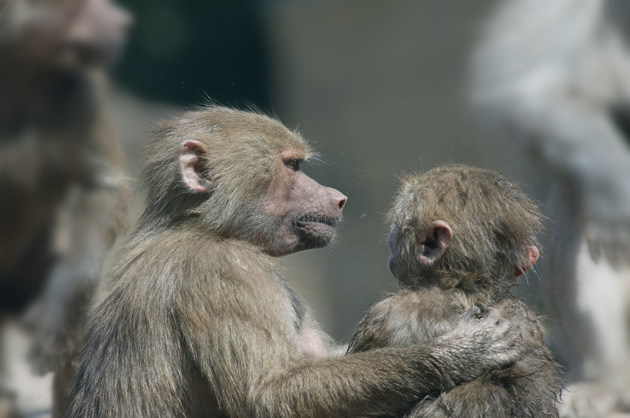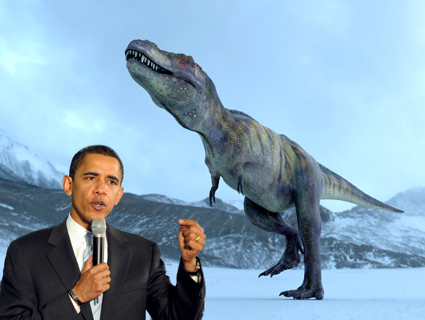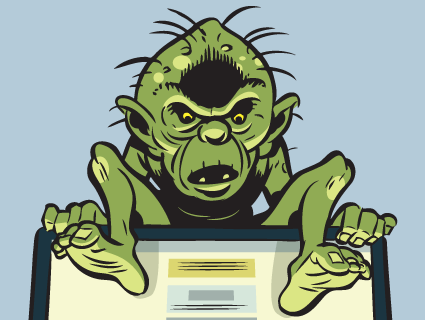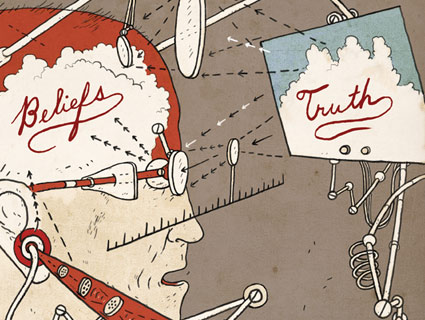
<a href="http://www.shutterstock.com/cat.mhtml?lang=en&search_source=search_form&version=llv1&anyorall=all&safesearch=1&searchterm=friendly+monkey&search_group=#id=2018715&src=fho3awfM9VPh1diXx7QgJg-1-4" target="_blank">Eric Gevaert</a>/Shutterstock
If you’re a Christian fundamentalist, you probably believe that morality comes directly from God (via a download of the Bible, to be sure). And if you’re a law-and-order conservative, you likely think we need strict rules, and harsh punishments, to keep people in line and prevent their baser impulses from taking over.
But if you’re a primatologist? In that case, your view of morality is radically different. You probably see indications of “moral” behaviors all throughout the animal kingdom, and especially among our primate relatives such as bonobos—who show high levels of empathy, have a female-dominated social structure, and use sex, rather than violence, to solve in-group social conflicts, and even when they encounter other, potentially hostile groups.
Emory University’s Frans de Waal—the celebrated primatologist familiar from other books like The Age of Empathy—makes a case for our evolved and biologically grounded morality in his new book The Bonobo and the Atheist: In Search of Humanism Among the Primates. Morality, de Waal argues, “antedates religion… [and] much can be learned about its origins by considering our fellow primates.”
In our interview (audio clip above, full length here), De Waal carefully explained his case for how morality springs from evolution and is part of us on a basic, emotional level—literally, part of the human wiring. That hardly means we’re incapable of wrong. But it does mean that sympathy, compassion, and a sense of fairness are deeply embedded in us—and also, in our fellow animals.
Consider these instances of compassion and moral behavior in mammals, all from De Waal’s book:
- Capuchin monkeys show clear altruistic behavior—they’ll help out a fellow capuchin even when they don’t have to. Consider an experiment with two capuchins in separate, adjacent cages. One of the monkeys can choose between two differently colored tokens—but importantly, the choice of a green token rewards both monkeys, whereas a red token rewards only the chooser. Sure enough, the monkey soon starts generously choosing green tokens. (Chimpanzees do the same.)
- Capuchins also show a strong sense of fairness—and outrage at perceived injustice. In another experiment with a similar setup, the monkeys are fine and happy if both receive cucumber slices to eat after performing a task. But if one capuchin received a slice of cucumber and the other a grape, the “slighted” monkey violently rebels, flinging the cucumber back at the experimenter and shaking the walls of the cage.
- Chimpanzees take care of their ailing and elderly—for instance, running and fetching water for an older, arthritic female.
- Elephants try, using their tusks, to pick up a fellow elephant that is injured or dying. They also collaborate—for instance, two elephants will pull a rope at precisely the same time to reel in a food cart that can only be captured if they work together.
- Bonobos—in whom fighting is rare, but not nonexistent—lick up blood from a biting wound they have inflicted.
- In one case, a bonobo named Lody bit off the finger of a human veterinarian—an act for which he felt apparent remorse. Upon seeing the veterinarian’s bandaged hand, Lody “took one glance…and went to the farthest corner of the exhibit, where he sat head down with his arms wrapped around himself.” The bonobo then showed an apparent lifelong awareness of the consequences of this action. Fifteen years later, when the vet returned to the sanctuary, Lody was obsessed with looking at her hand until she held it up, showing the missing finger. “He knew,” she said of the incident.
So where does morality ultimately come from? De Waal believes that empathy is fundamentally rooted in our core emotions, and that it likely evolved to support childrearing and stable group and social behavior.
As he concludes: “It’s impossible to look an ape in the eye and not see oneself.”
For the full length podcast interview—including a discussion of De Waal’s controversial rebukes to outspoken atheists—listen here.











